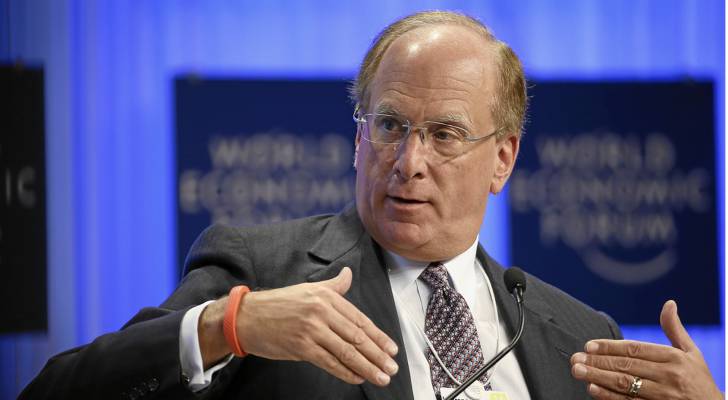Larry Fink's New Bet: What It Is and What It Means for Your Money

BlackRock CEO Encourages Investors to Embrace Private Equity Amid Market Uncertainty
As the financial landscape continues to shift, many investors are feeling uncertain about their portfolios. However, Larry Fink, CEO of BlackRock Inc., is urging individuals to take a bold approach by investing in private equity. This strategy, which involves alternative investments not listed on public stock exchanges, is gaining traction among both institutional and individual investors.
The Shift Toward Private Equity
BlackRock, known for its low-cost stock index funds and ETFs, has been expanding its reach into higher-fee private assets. Fink emphasizes that the key to long-term growth lies in broadening market access rather than withdrawing from it. In his annual letter to investors, he highlights the importance of democratizing markets and allowing more people to benefit from economic growth.
Fink's vision aligns with the growing trend of asset management firms offering private equity opportunities to a broader audience. Traditionally, private equity was reserved for wealthy individuals and institutions, but now, companies like Blackstone, Apollo, and KKR are making these investments more accessible. BlackRock itself has made significant moves in this space, acquiring firms such as Global Infrastructure Partners and Prequin, as well as finalizing a deal for HPS Investment Partners.
These acquisitions position BlackRock to manage $600 billion in alternative assets, signaling a major shift in the investment landscape.
Benefits and Risks of Private Equity
While private equity offers substantial upside potential, it also comes with unique challenges. Unlike public equities, private investments typically require a longer-term commitment and carry higher risks. However, they can provide diversification benefits, especially in volatile markets.
For individual investors, accessing private equity through specific funds is becoming more feasible. Platforms like Fundrise offer an entry point with as little as $10, allowing users to invest in real estate, private credit, and venture capital. The Fundrise Flagship Fund, for example, provides exposure to thousands of residential properties, offering a way to diversify portfolios without the complexities of direct property ownership.
Another option is the Arrived Private Credit Fund, which focuses on real estate debt investments. With a historical annualized dividend yield of 8.1%, this fund provides monthly payouts and flexible liquidity, making it an attractive choice for those seeking passive income.
For accredited investors interested in commercial real estate, platforms like First National Realty Partners (FNRP) offer opportunities to own shares in properties leased by major brands. These investments come with triple net leases, reducing the burden of tenant-related costs.
Diversifying Your Portfolio
Fink suggests that the traditional 60/40 portfolio may no longer be sufficient. Instead, he envisions a new standard: 50% in stocks, 30% in bonds, and 20% in private assets like real estate, private credit, and infrastructure. This approach could help mitigate risks and capitalize on growth opportunities.
However, it's essential to understand the risks associated with private equity. Investors should consult trusted sources such as the SEC, the U.S. Department of Labor, and FINRA for guidance on investment risks and regulations. Additionally, speaking with a financial advisor can help determine which private-equity investments align with individual goals and risk tolerance.
Finding the Right Path
With so many options available, it can be overwhelming to decide where to start. Online platforms like Advisor.com connect users with vetted financial professionals who can provide personalized advice. By answering a few questions about their financial situation, investors can find an advisor tailored to their needs.
Whether through real estate, private credit, or other alternative investments, the future of investing looks increasingly diverse. As BlackRock and other firms continue to expand their offerings, more individuals have the opportunity to participate in the growth of private markets.
By staying informed and seeking professional guidance, investors can navigate the complexities of private equity and make choices that support their long-term financial goals.
Post a Comment for "Larry Fink's New Bet: What It Is and What It Means for Your Money"
Post a Comment